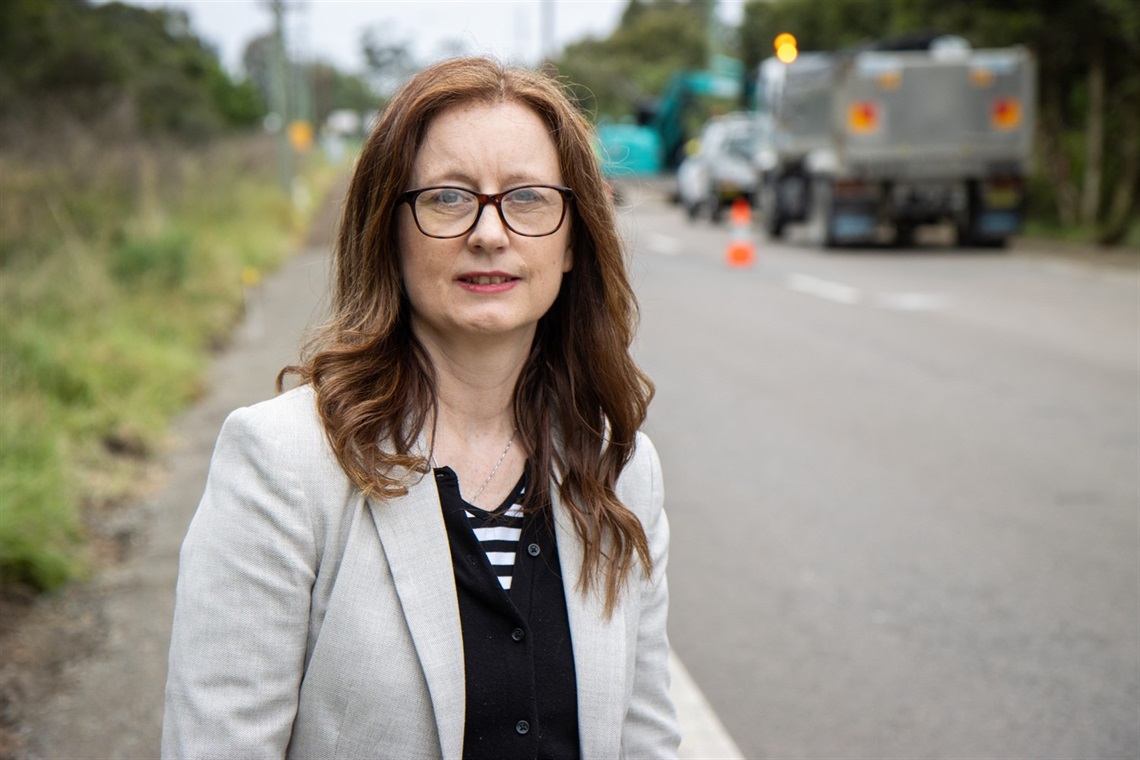New measures put Lake Mac on road to greener future
Published on 12 November 2021

Thousands of tonnes of material used to build roads in Lake Macquarie will be assessed to determine their environmental impact under a new system aimed at reducing the city’s carbon footprint.
Lake Macquarie City Council Circular Economy Lead Debbie O’Byrne said the new decision-making tool, co-funded by Hunter Water and the NSW Government, shed better light on the impacts of materials used when building new roads.
“These include CO2 emissions, water use and ecotoxicity, rather than a simple dollar value,” she said.
“The key shift in thinking when doing this is we’re now asking different questions.”
“It’s not just about the lowest price of materials, but what their impact is.”
Ms O’Byrne, recognised as a world leader in the circular economy space, said Council was forging ahead with its focus on creating a more sustainable city.
“The measures we’re taking will have very real, tangible benefits in the years to come,” she said.
“With last week’s UN Climate Change Conference and then National Recycling Week this week, environmental issues and the role all levels of government need to play in addressing them are getting the attention they deserve.”
Lake Macquarie has become Australia’s first regional local government area to join the Materials and Embodied Carbon Leaders’ Alliance (MECLA) – an initiative of WWF Australia and the NSW Government.
“MECLA brings together leading stakeholders with the drive and expertise to reduce the carbon footprint of the building and construction industries,” Ms O’Byrne said.
“One of the ways we can do that is to look at reusing building materials wherever possible, reducing demand for virgin materials and keeping what would otherwise be considered waste out of landfill.”
Case in point is the upgrade now underway to Council’s Landcare headquarters.
Thousands of pavers lifted during the recent refurbishment of Pearson Street Mall in Charlestown are getting a new lease on life at the site, rather than being thrown away or crushed.
“We are working with the University of Newcastle, Hunter Research Centre and other organisations to identify ways we can attract and grow the circular economy right across the Hunter Region,” Ms O’Byrne said.
“Each of these small steps will put us on the path towards a more sustainable future.”
Go to lakemac.com.au for more information about the circular economy and the new roads tool.